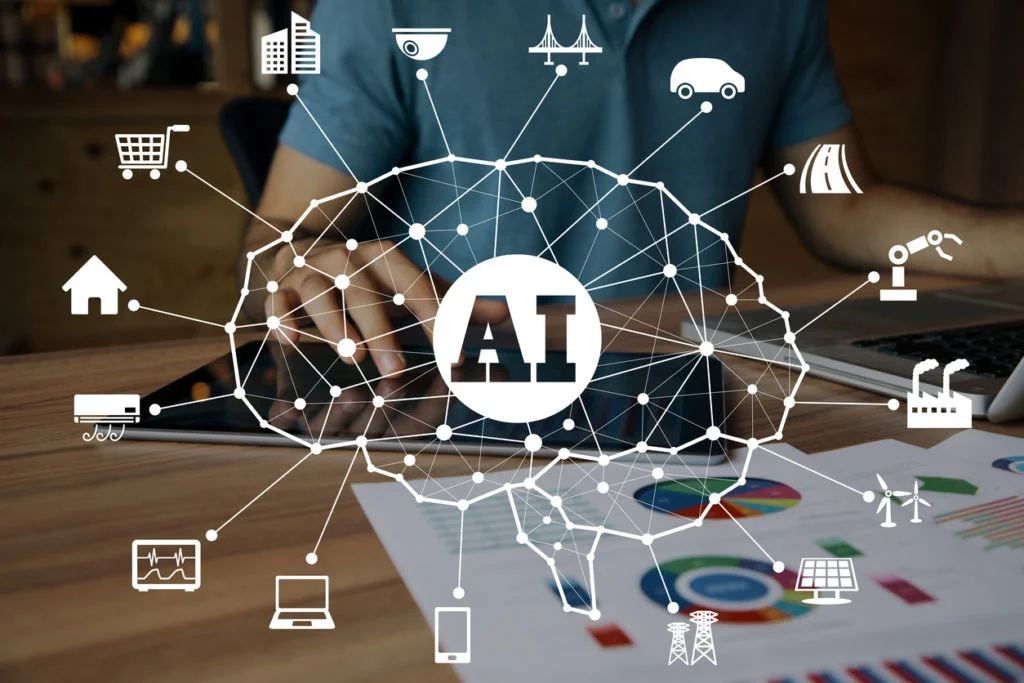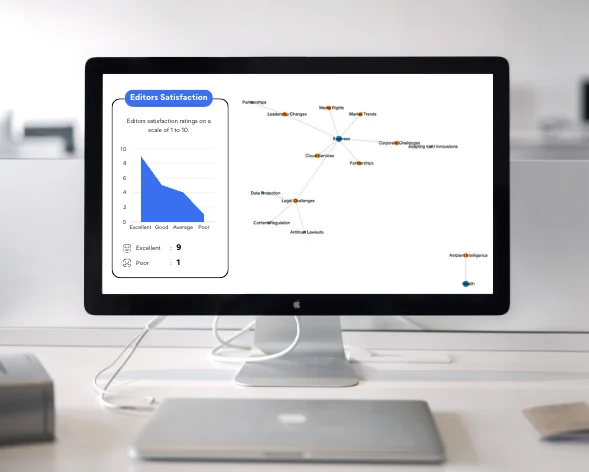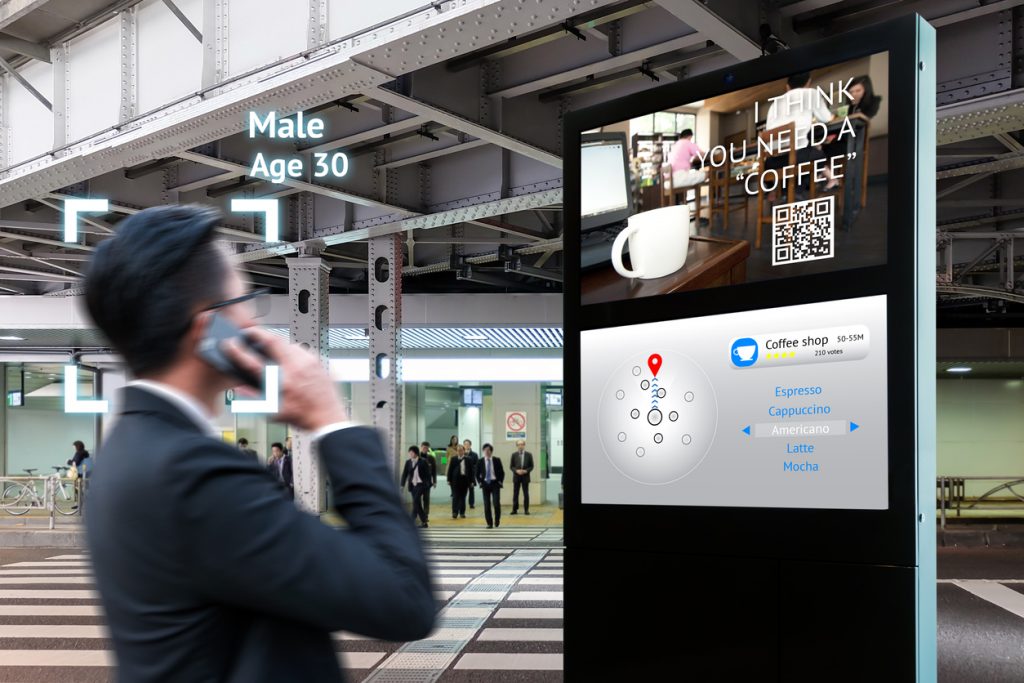Artificial Intelligence (AI) has recently become the most popular buzzword in the business world. Artificial Intelligence (AI) holds a lot of potential for evaluating data and extracting useful insights that you can utilize to make important strategic business decisions.
Businesses all around the world are seeking methods to make use of the advantages of advanced technology to help them develop.
According to a new analysis from Grand View Research, Inc., the worldwide Artificial Intelligence industry is estimated to reach USD 390.9 billion by 2025. From 2019 to 2025, the market is expected to grow at a CAGR of 46.2 percent.
Artificial Intelligence has emerged as a breakthrough technology innovation that has revolutionized the entire business landscape, thanks to its incredible ability to assist enterprises in making vital decisions.
Artificial Intelligence (AI) and its combination with a variety of other applications are assisting businesses in generating massive profits. Therefore, companies must incorporate artificial intelligence (AI) into their operations to fully realize the value contained in data.
Decision Intelligence as the Next Frontier in Business Decision Making
With the creation of the Decision Intelligence framework, the use of AI in decision-making became a hot topic. DI integrates administrative decision-making with Machine Learning and Data Science.
In Gartner’s 2020 hype cycle, Decision Intelligence was identified as an emerging engineering field. Gartner has created a Decision Intelligence model that helps discover and assess decision-modeling strategies that assist firms in making informed decisions.
AI is the next step in the evolution of technology, and it is already yielding promising results. According to McKinsey Global Institute research, AI might add $13 trillion to the global economy by 2030, boosting global GDP by over 1.2 percent every year.
Data is full of insights that can help you make better decisions. This data is processed by AI to obtain insights that can assist in taking appropriate steps.
The industries are accumulating unimaginable volumes of data with each passing day. Companies are experimenting with a variety of methods for processing large amounts of data and putting it to good use. They’re looking at the possibilities of Artificial Intelligence’s predictive analytics, which allows for AI-based decision-making.
According to a PwC survey, 86 percent of respondents believe AI would be the “mainstream technology” in their companies by 2021. Their companies have expanded their AI investments and intentions for AI deployment.
Every day, AI makes critical decisions for us. AI is having an impact on everything from smart weather prediction to YouTube and Netflix video recommendations. Hospitals are implementing AI-powered technologies to cut administrative costs and provide actionable insights to healthcare workers. The marketing sector uses automated ad campaigns to achieve high conversion rates, among other things.
The Three AI Levels in Decision-Making
For ages, human reason and intellect have guided vital decision-making. Wisdom and intellect are no longer credible in the face of petabytes of available data.
According to a Gartner survey, the existing decision-making process is unsustainable and must be re-engineered. According to the report, 65 percent of today’s decisions are more complicated than they were two years ago.
Modern judgments necessitate a technological approach to analyzing massive amounts of data. Because of its ability to handle large amounts of data and forecast outcomes, AI has become an important aspect of strategic decision-making. There are three stages of AI-assisted decision-making, as detailed below.
1. Decision Support
Data is analyzed using various AI approaches to gather critical insights. A mix of data-driven insights, the human mind, emotion, and intelligence goes into making the final decision.
2. Decision Augmentation
AI quickly analyzes large amounts of complex data and makes recommendations. Humans can approve or reject AI recommendations based on their knowledge and skill.
3. Decision Automation
AI’s prediction powers are precise and reliable enough that it may be trusted to make judgments on its own. Without human interference, systems can make their own decisions.
8 Ways AI Is Transforming Business Decision Making
Here, we will discuss 8 major ways AI is influencing decision-making. Let’s examine how artificial intelligence can assist you in making better decisions.
1. Marketing Decision-Making
Here are some examples of how AI can aid in business decision-making. The decision-making process has become even more difficult as disruptive market forces have taken hold.
Understanding client demands and matching products to meet those needs is difficult. As a result, companies are now seeking for techniques to predict client behavior, which is critical for marketing decisions.
To acquire useful insights, AI-enabled algorithms examine client data related to their surfing history. Businesses make efficient marketing decisions based on such information.
Launching marketing campaigns targeting prospects, sending product recommendations, and delivering customized mailings to provide customers with exactly what they want are just a few examples.
Spotify and Netflix utilize AI and ML algorithms for recommending episodes and music based on the preferences of their consumers.
As customers become accustomed to the number of individualized suggestions provided by services such as Netflix and Spotify, they seek for other brands to deliver the same level of service. This is how artificial intelligence (AI) makes commercial decision-making easier.
2. Customer Relationship Management
Customer Relationship Management (CRM) is a system that allows businesses to manage all of their communications and relationships with current and potential customers. The true objective of maintaining a CRM is to improve company relationships.
Technologies keep track of multiple aspects of a user’s activity at the same time, giving them a complete picture of their shifting preferences. Marketers gain specific information that enables them to generate distinctive services and allocate budget to various marketing channels, such as television, radio, and the Internet.
Artificial Intelligence generates customized recommendations for salesmen based on relevant data input into the CRM system. Customized sales, messages, and emails to be delivered at specific times are examples of this.
Data entry takes up 17% of sales professionals’ time, which equates to nearly one workday every week. The most important hurdle to CRM adoption is manual data entry.
AI-driven algorithms process large amounts of data in minutes, culminating in relevant business insights. While humans experience decision fatigue, AI systems do not, making the entire decision-making process more efficient. This is how AI makes it easier to decide on the business.
As per research by Nimdzi Insights and Pactera Technologies, 51 percent of businesses used artificial intelligence in 2017.
CallMiner Eureka, for instance, captures and transcribes client interactions using machine language and AI. These transcriptions are categorized using a rich categorization framework and major subjects.
When this information is entered into a CRM, it quickly generates crucial insights and linked specific data. This is how artificial intelligence (AI) aids in commercial decision-making.
3. Recommendation System
Let’s continue talking about how AI makes business decisions easier. The recommender system (engine) is a system that suggests products or other objects to consumers based on their interests and likes. Initially, these recommendation systems were mostly employed on music websites, but they are increasingly being used across a wide range of businesses.
For example, Achievion helped a startup investment marketplace leverage AI to predict the success of investments by building Machine Learning-based engine. It yielded much better outcomes than data analytics alone. The AI based product made it easy for the end-user to make business decisions for various investment scenarios.
Businesses utilize recommendation systems to learn about their customers’ preferences and decisions. Based on ‘explicit’ or ‘implicit’ input, the system employs AI algorithms to deliver extensive information on the consumer’s preferences.
These data can help marketing teams devise the best strategy for minimizing bounce rates and delivering more customer-centric content. This is one method in which artificial intelligence can assist in commercial decision-making.
AI can help both the economy and humanity grow by acting as a capital hybrid. It will undoubtedly have a transformative effect on decision-making.
4. Opinion Mining
Opinion mining is one of the ways AI is now impacting decision-making. AI holds a lot of promise for providing reliable information to decision-makers.
It can take a long time to go through all of your customers’ reviews and social media mentions. Because people continue to publish at all hours of the day and night, this analysis will never truly cease. The larger the company, the more difficult this problem may be. Smart algorithms can compile reviews and comments from a variety of sources and uncover trends for you.
Artificial Intelligence (AI) supplies organizations with a wealth of information about their customers. This aids them in fully comprehending customer requirements. It also aids retailers in forecasting demand for products.
Opinion mining aids firms in comprehending customer input and the reasons for their preferences. To provide actionable insights, all of these perspectives are adequately acquired and processed.
This information will aid businesses in anticipating client difficulties and taking proper action when making critical business decisions. This is how artificial intelligence (AI) makes business decision-making easier.
5. Augmented Analytics
Businesses may make better judgments by evaluating data with Augmented Analytics. Careful data analysis allows businesses to obtain greater insights, which aids in the development of effective marketing plans.
As per a recent Gartner news release, Augmented Analytics will be the next big thing, transforming the way analytics content is enhanced, enlarged, and shared.
When corporate executives and decision-makers have access to credible data and recommendations, they make wise and precise business judgments. The application of modern AI approaches not only increases the productivity of individual team members but also helps organizations outperform their market competitors.
6. Pricing Strategy
Another application of AI in decision-making is to assist in the calculation of product prices. Your managers will be unable to efficiently review hundreds or thousands of product pricing daily. However, AI can assist them.
Smart technologies not only quickly evaluate large amounts of data, but they also catch pricing relationships that humans may miss. A price change for one item, for instance, may impact the sales of several others.
7. Problem-Solving
Expert systems are used by corporations from numerous fields to have technologies immediately handle difficulties. These are artificial intelligence (AI)-based tools that mimic human problem-solving abilities. These systems identify and evaluate data to make additional recommendations for resolving specific problems.
8. Business Expansion
It’s great to hear that your company is expanding. However, you are unsure which direction to expand in, which poses a dilemma. For this case, using AI in decision-making is a successful application of technology.
For example, AI considers the company’s growth, client persona and behavior, and a list of potential sites when deciding where to open a new branch office. It then suggests location modifications that are most likely to yield the highest return on investment.
Final Word
Technology is rapidly evolving and modern AI-centric methodologies are replacing traditional software development strategies. Businesses are becoming more aware of the advantages of adopting AI into their decision-making process, as it promises a higher return on investment.
Investors and stakeholders will have more confidence in AI as more businesses continue to invest in AI and develop solutions at scale. More importantly, they will begin to count more on AI to drive their crucial business decisions.









